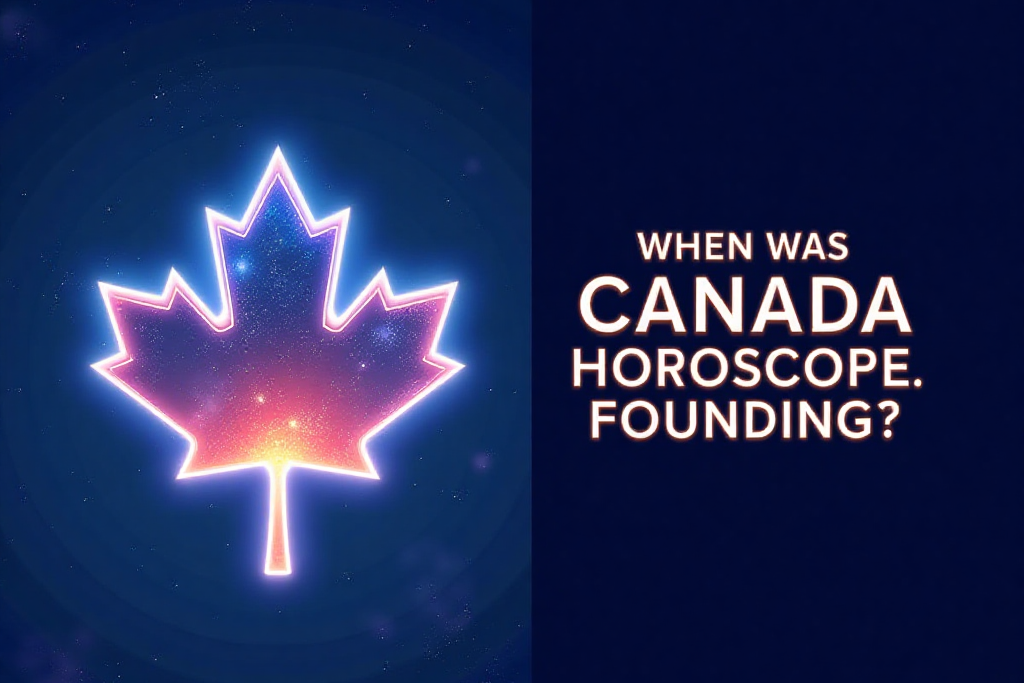Have you ever wondered about your horoscope? ✨ Many people worldwide check their daily or weekly horoscopes to get a glimpse into their future or understand themselves better. Astrology, the study of how celestial bodies (like planets and stars) might influence human affairs and natural events, has been around for thousands of years. But how did this ancient practice find its way to Canada? Was there a specific moment, a “Canada Horoscope Founding” day, when astrology officially began here?
The truth is, there wasn’t one single “founding” moment for horoscopes or astrology in Canada. Instead, it was a slow, fascinating journey, woven into the very fabric of Canadian history, influenced by Indigenous traditions, European settlers, and the changing times. From ancient sky-gazing to modern-day apps, let’s explore the deep roots and vibrant evolution of astrology in the Great White North. Canada Horoscope Founding 🍁
Key Takeaways
- No Single “Founding” Date: Unlike a country’s founding, there isn’t one specific “Canada Horoscope Founding” date. Astrology’s presence in Canada evolved gradually over centuries.
- Indigenous Roots: Long before European arrival, Indigenous peoples in Canada observed celestial bodies, connecting them to spiritual beliefs, stories, and seasonal cycles.
- European Influence: Astrology arrived with European settlers, mainly through almanacs and religious texts, becoming more widespread in the 19th and 20th centuries.
- Modern Popularity: The rise of newspapers, radio, and later the internet helped make horoscopes and astrological readings popular, leading to a diverse and accessible astrological community today.
- A Living Tradition: Astrology in Canada is a blend of historical influences and modern interpretations, continuing to adapt and thrive in the digital age.
Ancient Whispers: Indigenous Celestial Wisdom
Before any European set foot on Canadian soil, the land was home to diverse Indigenous nations. These peoples had a profound connection to the natural world, and that included the sky above. Their understanding of the cosmos wasn’t “astrology” in the Western sense of horoscopes and zodiac signs, but it was deeply rooted in celestial observation and its meaning for life on Earth.
Imagine gazing up at the vast Canadian night sky, far from city lights. For thousands of years, Indigenous communities did just that. They watched the sun, moon, and stars, not just for curiosity, but for survival and spiritual guidance.
- Navigation: The stars were vital guides for travel across vast landscapes, especially during long journeys or hunting trips.
- Timekeeping: The cycles of the moon and the positions of constellations helped mark the seasons, indicating when to hunt, fish, plant, or harvest. This was their calendar!
- Spiritual Connection: Celestial bodies were often seen as powerful spirits or deities, woven into creation stories, myths, and ceremonies. The Northern Lights, for example, held deep spiritual significance for many.
- Oral Traditions: Knowledge about the stars and their meanings was passed down through generations via storytelling, songs, and ceremonies. These stories often explained the origins of the world and humanity’s place within the cosmos.
For instance, the Anishinaabe people have the “Fisher Star” (part of the Big Dipper), which helped them know when to fish. The Plains Cree observed the “Orion” constellation, which they called “The Hand.” These celestial patterns were not just random lights; they were living parts of their world, guiding their lives and beliefs.
While not “horoscopes” as we know them today, these traditions represent the earliest forms of connecting human life to the cosmos in what is now Canada. They laid a foundational understanding that the heavens held meaning and influence over earthly existence.
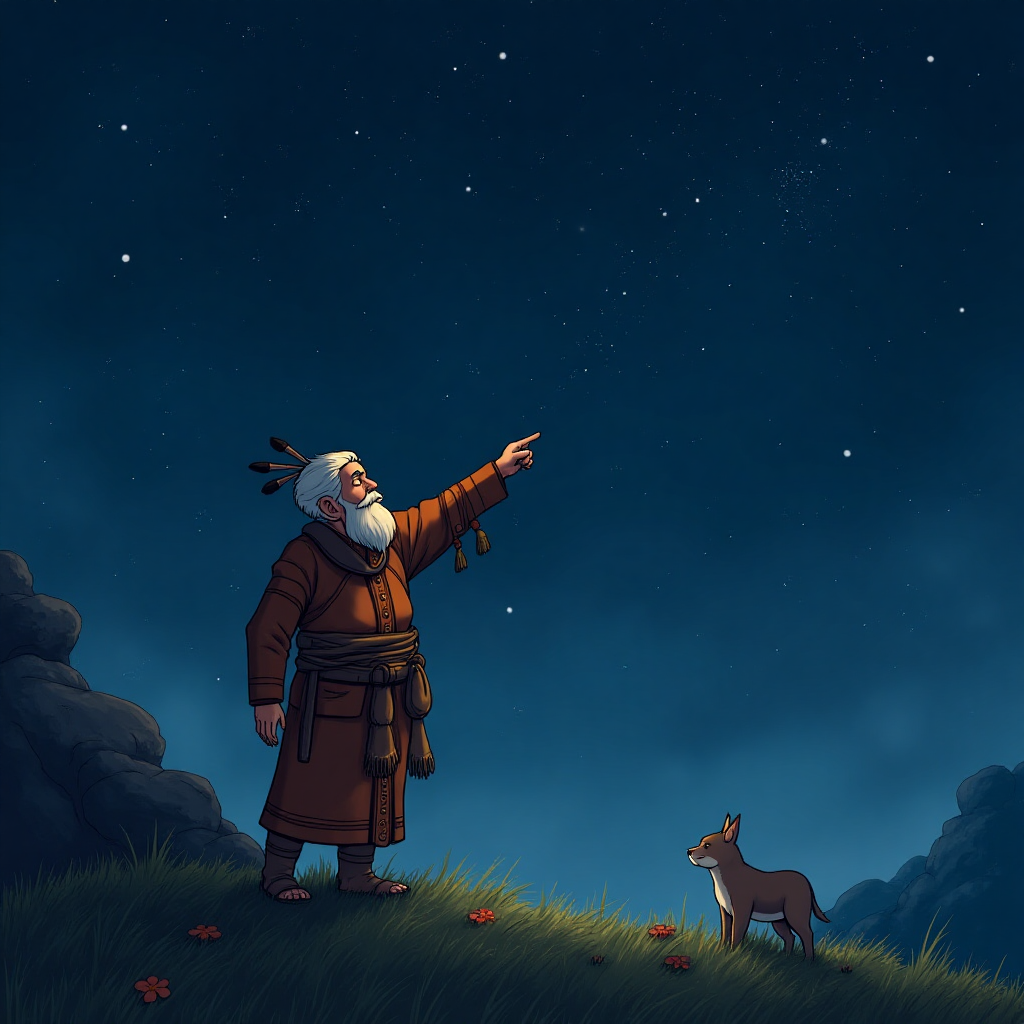
European Arrival: Bringing New Stars to a New World
When European explorers and settlers began arriving in Canada from the 16th century onwards, they brought their own cultures, beliefs, and sciences – including astrology.
Early French and British Influence
The first significant waves of European settlers were the French, followed by the British. Both cultures had long histories with astrology, though its role had changed over time.
- French Colonization (New France): In the 17th and 18th centuries, French settlers brought with them a blend of Catholic traditions and Enlightenment-era thinking. While the Church often viewed astrology with suspicion, popular astrology still existed, mainly through almanacs. These were yearly publications that included calendars, weather forecasts, tide tables, and often, astrological predictions and advice for planting crops or even health matters. These almanacs were practical tools for survival in a new land.
- British North America: As British influence grew, especially after the Seven Years’ War, British customs and printed materials became more common. British almanacs and newspapers also frequently featured astrological content.
For these early settlers, life was hard. The weather was unpredictable, diseases were common, and the future was uncertain. In such times, people often turned to whatever offered guidance or a sense of control. Astrology, even if seen as a bit superstitious by some, could provide comfort, advice, or simply entertainment.
“In the harsh realities of early colonial life, any tool that offered a glimmer of foresight, from weather predictions to planting advice, held value. Almanacs, with their blend of practical information and astrological tidbits, were indispensable.”
The Rise of Almanacs and Newspapers
The 19th century saw the widespread growth of printing presses and literacy. This was a crucial period for the popularization of astrology in Canada. Canada Horoscope Founding
- Almanacs Go Mainstream: Almanacs became incredibly popular. They were cheap to produce and widely distributed, reaching even remote communities. They often included:
- Zodiacal information: When the sun entered each zodiac sign.
- Planetary positions: For agricultural planning or health remedies.
- Horoscope-like advice: General predictions based on the moon’s phase or planetary transits.
- “Best days” for activities: Planting, harvesting, fishing, or even getting married.
- Newspaper Horoscopes: By the late 19th and early 20th centuries, newspapers began to feature daily or weekly horoscope columns. These were often short, general predictions for each zodiac sign, designed for mass appeal. This marked a significant shift: astrology moved from being a specialized study or a practical guide to becoming a form of daily entertainment and personal reflection for the general public.
This period was perhaps the closest to a “Canada Horoscope Founding” in terms of widespread public access and engagement. It wasn’t a formal event, but the consistent appearance of horoscopes in print media meant that millions of Canadians were now regularly exposed to and engaging with astrological ideas. Canada Horoscope Founding.
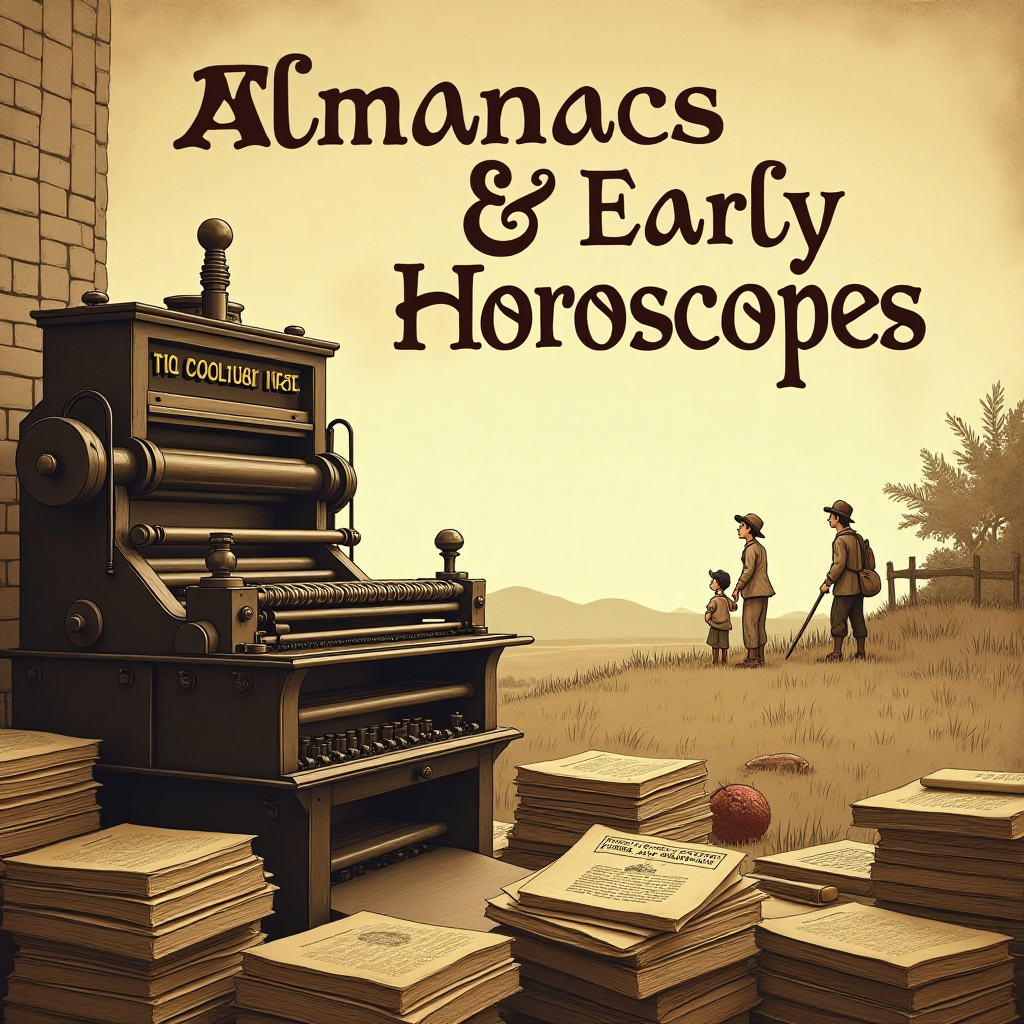
The 20th Century: From Occult Revival to Mainstream Acceptance
The 20th century was a whirlwind of change, and astrology in Canada changed with it.
The Occult Revival and Spiritualism (Early 20th Century)
In the late 19th and early 20th centuries, there was a global surge of interest in spiritualism, mysticism, and the occult. This often went hand-in-hand with astrology. People sought meaning beyond traditional religion, especially after the devastations of World War I and the Great Depression. Canada Horoscope Founding
- Astrological Societies: Small groups and societies dedicated to the study of astrology began to form in major Canadian cities like Toronto, Montreal, and Vancouver. These were often scholarly or spiritual in nature, focusing on deeper astrological principles rather than just daily horoscopes.
- Private Practitioners: Astrologers began to offer private readings, providing personalized insights based on an individual’s birth chart (a map of the sky at the exact moment of their birth).
The Post-War Boom and Counterculture (Mid-20th Century)
The mid-20th century, particularly the 1960s and 70s, saw another massive surge in astrology’s popularity, fueled by the counterculture movement.
- “Age of Aquarius”: The musical “Hair” popularized the phrase “Age of Aquarius,” bringing astrological concepts into the mainstream consciousness. This era emphasized peace, love, and spiritual exploration, and astrology fit right in.
- Media Saturation: Horoscope columns became standard features in almost every newspaper and many magazines. Television and radio shows occasionally featured astrologers. This made astrology more accessible and less “fringe.”
- Self-Help Movement: As the self-help movement grew, people looked for tools to understand themselves better. Astrology offered a framework for personality analysis, relationship dynamics, and life purpose.
During this time, astrology became less about predicting specific events and more about psychological insight and personal growth. This shift made it appealing to a broader audience who might not have believed in strict fortune-telling but were curious about self-discovery. Canada Horoscope Founding
The Digital Age and Beyond (Late 20th Century to Today)
The late 20th century and the dawn of the 21st century brought the internet, which completely transformed how people accessed and engaged with astrology.
- Online Horoscopes: Websites dedicated to astrology sprang up, offering free daily horoscopes, birth chart calculators, and detailed articles. This made astrology instantly accessible to anyone with an internet connection, regardless of where they lived in Canada Horoscope Founding.
- Social Media: Platforms like Instagram, TikTok, and YouTube have become huge hubs for astrological content. Influencers, meme accounts, and educational channels share everything from basic zodiac traits to complex planetary transits.
- Astrology Apps: Mobile apps like Co-Star, The Pattern, and Sanctuary provide personalized readings, daily insights, and even social features, making astrology a highly interactive and personalized experience.
- Diverse Practices: Today, Canadian astrology encompasses a wide range of practices, from traditional Western astrology to Vedic astrology, evolutionary astrology, and more. There are professional astrologers, educators, and a thriving community of enthusiasts.
“The internet didn’t just digitize horoscopes; it democratized astrology. Suddenly, a complex ancient art became accessible, interactive, and endlessly customizable for millions, including a vast Canadian audience.”
The “Founding” Question Revisited: A Gradual Unfolding
So, when was “Canada Horoscope Founding”? As we’ve seen, there isn’t a single date on a calendar. Instead, it’s a story of gradual adoption and evolution:
- Ancient Roots (Pre-European): Indigenous peoples’ celestial wisdom laid a conceptual groundwork for understanding the cosmos’ influence.
- Introduction (17th-18th Century): European settlers brought their astrological traditions, mainly through practical almanacs.
- Popularization (19th-Early 20th Century): Newspapers made horoscopes a common, accessible form of entertainment and guidance.
- Integration (Mid-20th Century): Astrology became deeply embedded in popular culture, fueled by social movements and media.
- Modern Flourishing (Late 20th-21st Century): Digital technology made astrology personalized, diverse, and globally connected.
It’s more accurate to speak of the founding of astrological practice and interest in Canada. Canada Horoscope Founding, which has been a continuous process spanning centuries. Each era added a new layer, shaping how Canadians interact with the stars. Canada Horoscope Founding
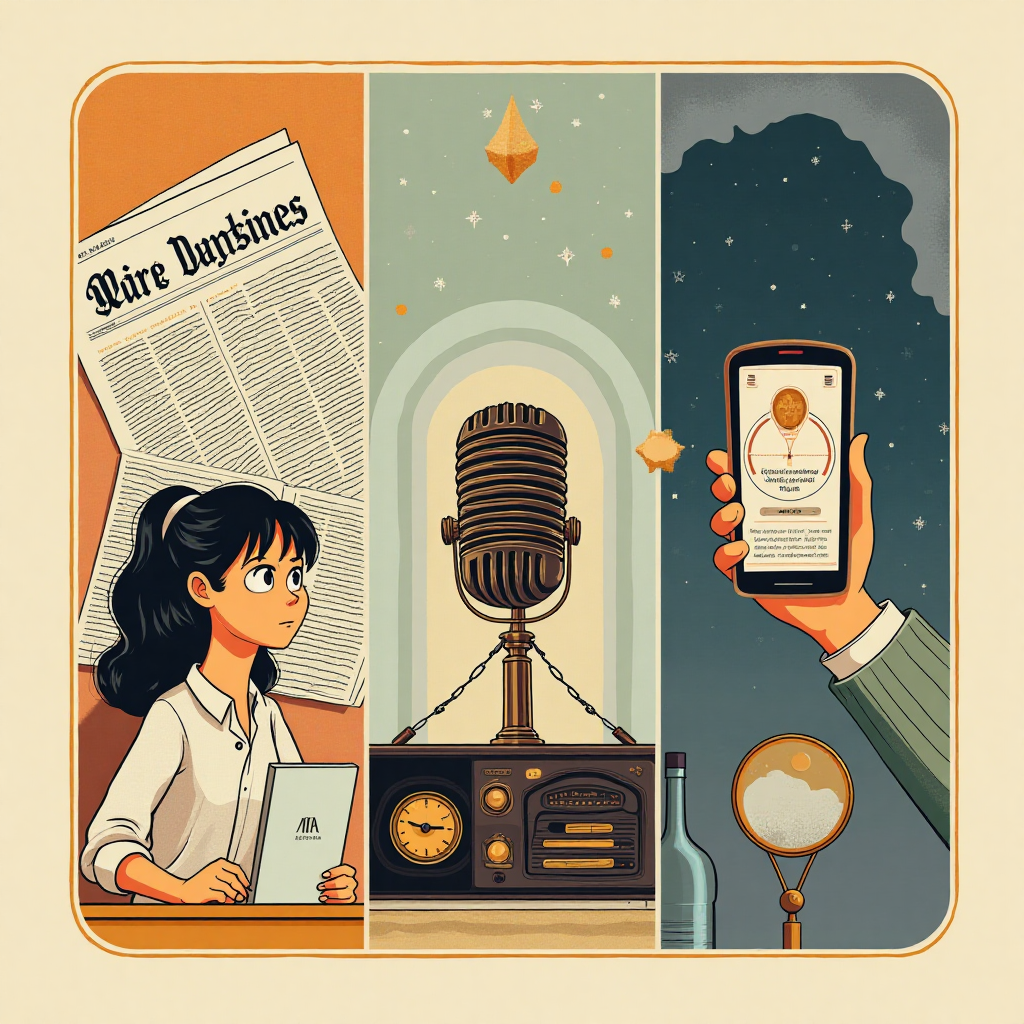
Astrology in Canadian Culture Today
Today, astrology in Canada is a vibrant and diverse field. It’s no longer just about daily horoscopes; it’s a tool for: Canada Horoscope Founding.
- Self-Understanding: Many use their birth charts to understand their personality traits, strengths, and challenges.
- Relationship Dynamics: Synastry (comparing two birth charts) helps people understand their connections with others.
- Life Planning: Astrological transits can offer insights into favorable times for career changes, relationships, or personal development.
- Spiritual Growth: For some, astrology is a spiritual path, connecting them to the cosmos and a larger universal order.
Legal and Cultural Status
In Canada, astrology is generally viewed as a cultural or spiritual practice, not a science. It’s not regulated by the government, and practitioners operate freely, similar to other alternative healing or spiritual services. While some people dismiss it as pseudoscience, a significant portion of the population finds value and interest in it. Canada Horoscope Founding
- Public Opinion: Surveys often show that a notable percentage of Canadians “believe” in astrology or find it “interesting.” Younger generations, in particular, show a strong inclination towards exploring astrological concepts.
- Media Presence: Horoscopes continue to appear in major Canadian newspapers, magazines, and online publications. Many Canadian media outlets have dedicated astrology sections.
- Community: There are active astrological communities across Canada, hosting workshops, conferences, and online forums. Canadian astrologers are recognized internationally for their contributions to the field.
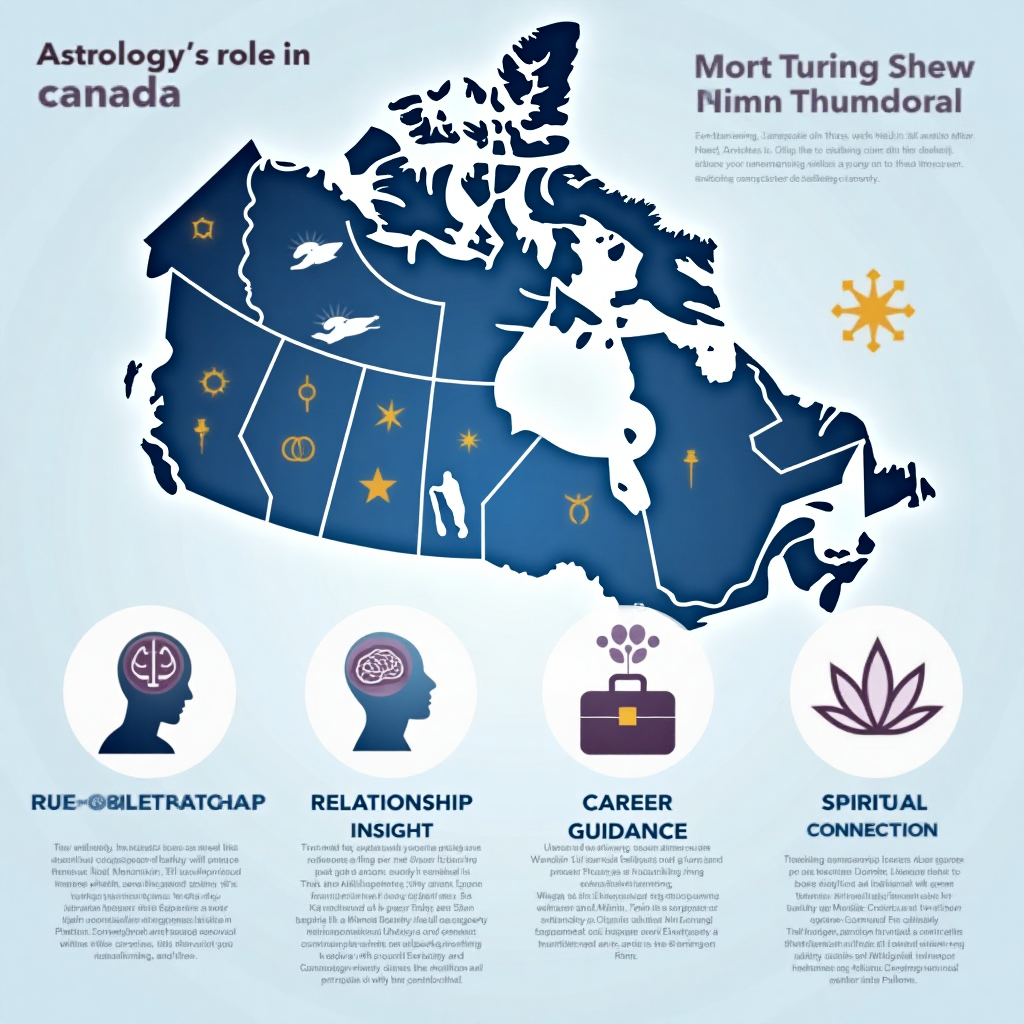
Notable Canadian Astrologers and Institutions
While it’s difficult to pinpoint a single “founding father” or “mother” of Canadian astrology, many individuals and organizations have contributed to its growth:
- Early Pioneers: Though names are harder to trace from the early days, countless anonymous astrologers, almanac writers, and newspaper columnists gradually built the foundation.
- 20th Century Figures: As astrology became more formalized, individuals began to emerge as teachers and practitioners. These figures often operated in local communities, holding classes and offering readings.
- Modern Day Influencers: Today, Canadian astrologers leverage online platforms to reach a global audience. Many are respected authors, educators, and speakers in the international astrological community. Their work helps shape the future of astrology both within Canada and beyond.
For example, the Canadian Astrological Association (CAA), though not the first, is an important organization that aims to promote and educate about astrology in Canada. Canada Horoscope Founding. It connects astrologers, organizes events, and helps maintain professional standards. Such organizations play a vital role in formalizing and advancing the practice of astrology.
Interactive HTML Element: A Timeline of Astrology’s Journey in Canada
This interactive timeline will help readers visualize the gradual development of astrology in Canada, emphasizing that there was no single “founding” date but rather a continuous evolution.
The Cosmic Journey of Astrology in Canada: A Timeline
Indigenous Celestial Wisdom
Long before European arrival, Indigenous peoples across Canada observed the sun, moon, and stars. They used celestial cycles for navigation, timekeeping, and spiritual guidance, weaving cosmic knowledge into their oral traditions and ceremonies. This laid a foundational connection between humans and the heavens.
European Settlers & Almanacs
French and British settlers brought their own forms of popular astrology, primarily through almanacs. These yearly publications contained calendars, weather forecasts, and often astrological predictions or advice for farming and health, serving as practical guides in colonial life.
Rise of Print & Popularization
With increased literacy and printing presses, almanacs became widely distributed. Newspapers began featuring regular horoscope columns, making astrology accessible to a broad public as a source of daily entertainment and general guidance, moving it closer to its modern form.
Occult Revival & Societies
A global interest in spiritualism and mysticism led to the formation of astrological societies in Canadian cities. Private astrologers began offering personalized birth chart readings, deepening the practice beyond simple newspaper horoscopes.
Post-War Boom & Counterculture
The 1960s and ’70s saw a massive resurgence in astrology’s popularity, fueled by the counterculture movement and the “Age of Aquarius.” Horoscopes became standard in mainstream media, and astrology was increasingly viewed as a tool for psychological insight and self-discovery.
Digital Age & Modern Flourishing
The internet revolutionized astrology, bringing online horoscopes, birth chart calculators, and a vast array of educational content. Social media and mobile apps further personalized and democratized astrology, creating a diverse and thriving community across Canada and globally.
Conclusion: A Constellation of Influences
The question “When was Canada Horoscope Founding?” doesn’t have a simple answer because astrology’s journey in Canada wasn’t a single event, but a rich tapestry woven over centuries. From the profound celestial wisdom of Indigenous peoples to the practical almanacs of early settlers, and from the rise of newspaper horoscopes to the personalized apps of today, astrology has continually adapted and found new ways to connect with Canadians. Canada Horoscope Founding
It’s a testament to humanity’s enduring fascination with the cosmos and our desire to understand our place within it. Today, astrology continues to thrive in Canada, Canada Horoscope Founding is a living, evolving tradition that reflects our diverse history and our ongoing quest for meaning under the vast, starry skies. ✨
